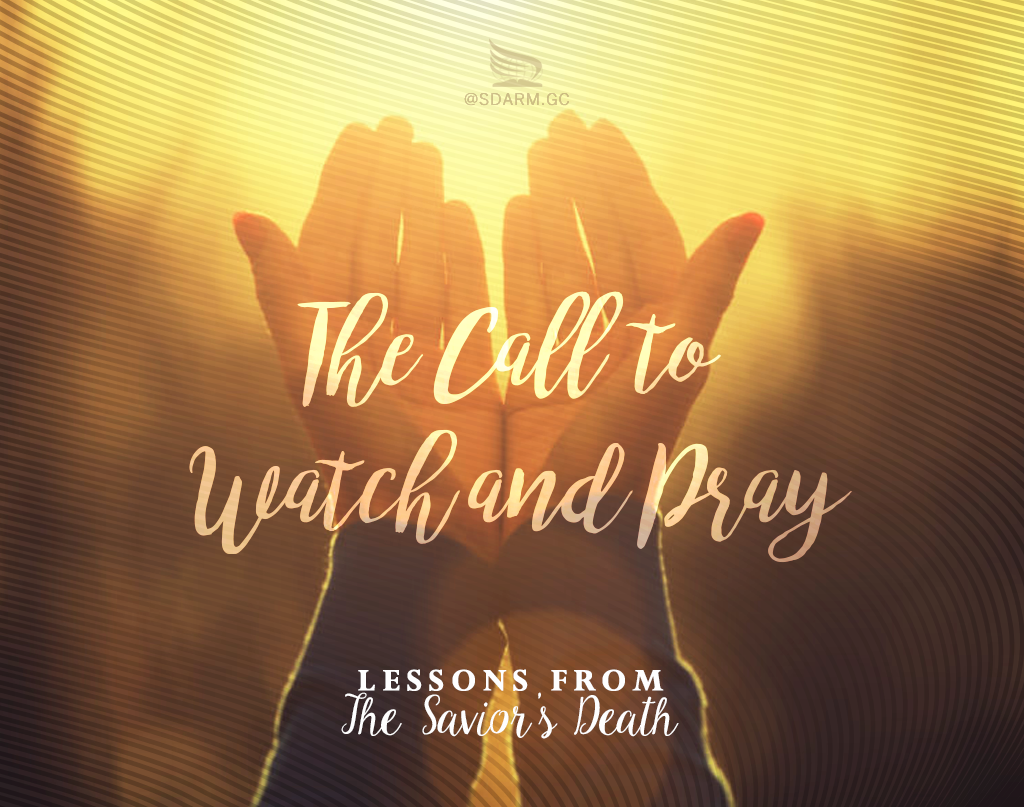
After partaking of the Passover supper for the last time, Christ led His disciples to the Mount of Olives and into the garden of Gethsemane. This was no strange occurrence as Jesus often led them there and would spend hours in prayer, often for His disciples.
“On these occasions, after a season of watching and prayer, [the disciples] would sleep undisturbed at a little distance from their Master, until He awoke them in the morning to go forth anew to labor,” (Desire of Ages, p. 686).
This time, however, He left them at the entrance of the garden with a request: watch and pray. Accompanied only by Peter, James, and John, Christ ventured deeper into the garden and asked the three: watch and pray. Still near enough to see and hear them, the Savior prays alone a little farther off. Impressed by the obvious struggle their Savior was enduring, the disciples prayed with Him.
“They did not intend to forsake their Lord, but they seemed paralyzed by a stupor which they might have shaken off if they had continued pleading with God. They did not realize the necessity of watchfulness and earnest prayer in order to withstand temptation,” (Desire of Ages¸ p. 688).
At a time of utmost darkness when the Father’s light was withdrawing, the disciples slept. They loved the Savior. They had faith. “The spirit indeed is willing…” So why didn't they watch?
Isaiah says, “In quietness and in confidence shall be your strength” (Isaiah 30:15). The disciples’ weakness was in that their confidence was in self. Too often so is ours. The call to watch and pray is still as pertinent as it ever was. So why don't we? We know there is a battle between good and evil happening incessantly around us—in our very homes and over our own souls. The spirit and light of God are withdrawing from this dark world, and sin and darkness are grasping this world ever tighter. How much longer can it last?
In the garden, Christ overcame. Today, through Him, so can we. The warning to “watch and pray, lest ye enter into temptation” indicates trials will be part of our Christian experience. The disciples knew not the tribulations that lay ahead, and neither do we, but the commandment to watch and pray is enough. It is a promise of victory through Christ.
“The human heart longs for sympathy in suffering. This longing Christ felt to the very depths of His being. In the supreme agony of His soul He came to His disciples with a yearning desire to hear some words of comfort from those whom He had so often blessed and comforted, and shielded in sorrow and distress. The One who had always had words of sympathy for them was now suffering superhuman agony, and He longed to know that they were praying for Him and for themselves,” [Emphasis added] (Desire of Ages, p. 687).
Our social circles today are filled with individuals who long for sympathy in their suffering. We are the last rays of light in this world, and God longs to use us to comfort others. How encouraging to know that others are watching and praying for you!
Let us pray for ourselves and for one another, encourage and build one another up in faith. It is time to pray alone in secret places for our own souls, families, and churches. It is time for families to bend their knees and pray for one another together. It is time for church members to pray fervently for their brethren.
There is no time to sleep. The time to watch and pray is right now. Christ poses the same question to us as He did to Peter centuries ago: “__________, sleepest thou? Couldest not thou watch one hour?”
“We know not the hour of the Master’s appearing;
Yet signs all foretell that the moment is nearing
When He shall return ’tis the promise most cheering
But we know not the hour.
We’ll watch and we’ll pray, with our lamps trimmed and burning;
We’ll work and we’ll wait till the Master’s returning;
We’ll sing and rejoice, every omen discerning
But we know not the hour.
He will come, let us watch and be ready; ….”
We Know Not the Hour – F. E. Belden
Hymn #573 - Reformation Hymnal